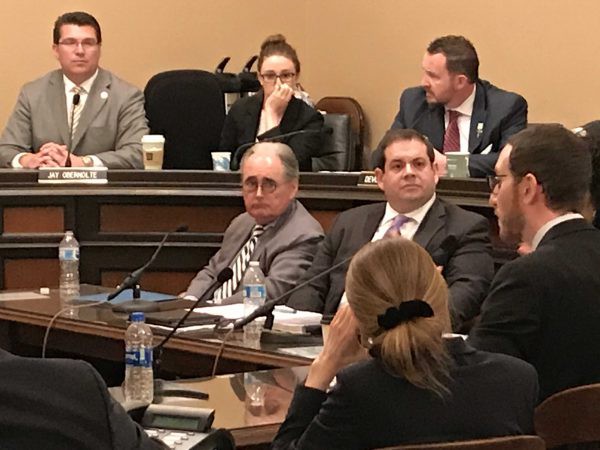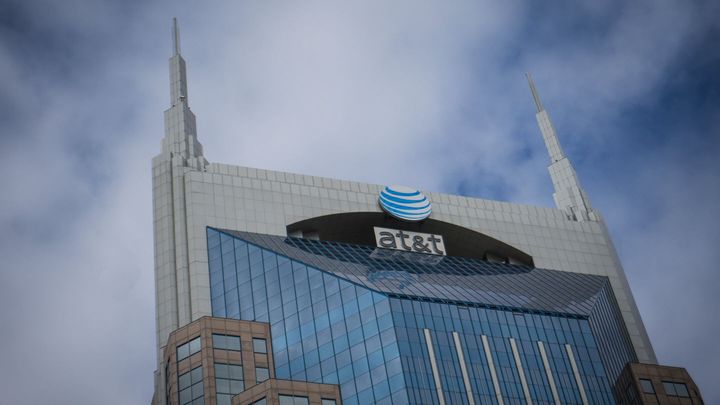After being gutted in June, net neutrality bills in California were restored and approved by a key Assembly committee last week. The vote was a major victory for net neutrality supporters, but as the bills now await votes by the full Assembly on the final day of the legislative session, the lobbying forces that originally succeeded at gutting it are continuing to fight against it.
Chief among them is AT&T, one of the most politically powerful companies in California and a staunch opponent of the net neutrality bills. AT&T spends millions on lobbying each year and contributes more money to California politicians than any other corporation in the state.
They also have a special weapon to employ when lobbying the Legislature: Vice President of Legislative Affairs Bill Devine, a powerful influence peddler who, despite his well-documented lobbying, does not register as a lobbyist.
By not registering as a lobbyist, Devine can take advantage of political influence techniques that registered lobbyists are banned from under California laws. The Political Reform Act of 1974 requires registered lobbyists to disclose their lobbying activity expenses to the state. It also bans them from giving gifts worth more than $10 to state, legislative and agency officials. Under Proposition 34, enacted in 2000, registered lobbyists are also banned from making campaign contributions.
A complaint filed on August 24 with the California Fair Political Practices Commission (FPPC) and reviewed by Sludge challenges Devine’s status as an unregistered lobbyist.
“William H. Devine, an AT&T Vice President, unlawfully fails to register as a lobbyist, despite spending the majority of his time in the Capitol Building talking to lawmakers and staff in order to influence legislation,” the complaint, which was submitted anonymously, says. “It is an open secret in the Capitol building that Mr. Devine is an undeclared AT&T lobbyist.”
Devine is known by political observers as a fixture in California’s Capitol. In Capitol Weekly’s most recent ”Top 100” list of “people who aren’t elected to office but who wield decisive influence on California politics or policy,” Devine was ranked 11th. Devine is “at the center of every major telecommunications bill in the Capitol,” Capitol Weekly reported. Past editions of the Top 100 list said that Devine was “ubiquitous in Capitol corridors” and that he “has every legislator on speed dial.”
“Bill Devine calls lawmakers by their first names, is a prodigious fundraiser for some of them and gives bear hugs in Capitol corridors,” Capitol Weekly wrote in 2015. “He is also one of the most aggressive—dare we say ruthless?—and powerful lobbyists in Sacramento.”
Other individuals working on telecom issues in California are surprised that Devine does not register as a lobbyist.
“He is generally known as AT&T’s person in Sacramento, so it surprises me that he is not registered,” said Ernesto Falcon, legislative counsel at Electronic Frontier Foundation. “I honestly assumed he was, given how he is synonymous with the company in terms of walking the halls.”
Devine has not registered as a lobbyist since 2006, according to disclosures with the California Secretary of State’s office.
According to the FPPC’s lobbying manual, individuals who lobby on behalf of their employers and spend at least one-third of their compensated time in a calendar month engaging in communication with lawmakers of government officials, including prepping for such communications, must register as lobbyists.
AT&T’s latest disclosure, filed on July 31, reports having paid Devine $117,000 so far this biennial legislative session for lobbying-related activities.
Inquiries made to Devine for comment on this story were not returned.
Lobbying against net neutrality
Devine has been a central figure in lobbying around the pair of net neutrality bills (SB 822 and SB 460) currently being debated in the Legislature.
At an April hearing before the Senate Energy, Utilities, and Communications Committee, Devine said that the net neutrality bill is not necessary because of AT&T’s commitments to abide by the principles. Devine argued that the company’s promises not to block or throttle content are “enforceable by the federal government and the California attorney general,” despite the fact that those are voluntary commitments that could be removed from the company’s terms of services at any time.

More recently, Devine gave testimony on behalf of AT&T at the Assembly Communications and Conveyance Committee’s net neutrality hearing on August 20.
On Monday he was quoted by the Los Angeles Times arguing against the bills. Devine was identified as “a Sacramento-based lobbyist for AT&T.”
The complaint specifically calls out Devine’s work on the net neutrality bills, alleging that he intentionally hides his lobbying in order to remain unregistered and exempt from lobbyist ethics rules.
“Mr. Devine hides his lobbyist status by setting up meetings under other AT&T employee and lobbyist names,” the complaint alleges. “In particular, Mr. Devine has recently been lobbying legislators on SB 822 and SB 460. On information and belief, Mr. Devine attended numerous meetings with other AT&T lobbyists, employees and grant beneficiaries, including, but not limited to, employees of CalInnovates (paid by AT&T to work against SB 822/SB 460) and a researcher paid by CalInnovate, David Sosa. He may also have accompanied Mark Kleeman, a fellow at University of California – San Diego.”
The FPPC has given Devine 14 days to respond to the complaint. After that period they will determine whether or not to formally investigate the allegations.



